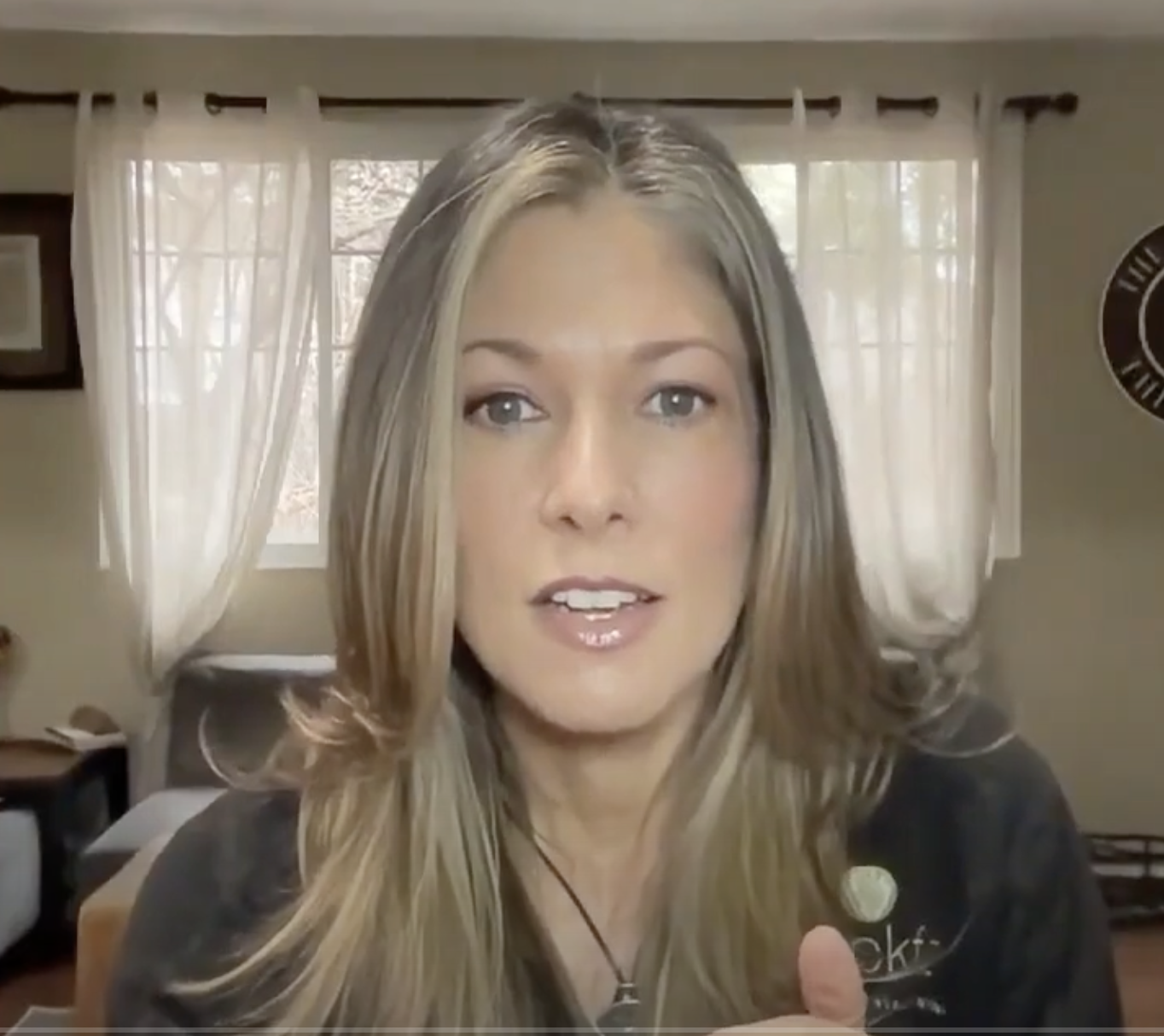
Why healing trauma benefits our dogs behaviorally.
Having a trauma-informed and *holistic* (meaning: we pay attention to ALL contributing ingredients) approach to behavior: behavioral training, conditioning, modification, and rehabilitation in working with dogs is important. Why? Because *both* ends of the leash are in constant conversation with each other. And both ends of the leash are usually responding, sharing, and exchanging from the residue trauma has left behind (aka skewed interpretations, perceptions, and filters).
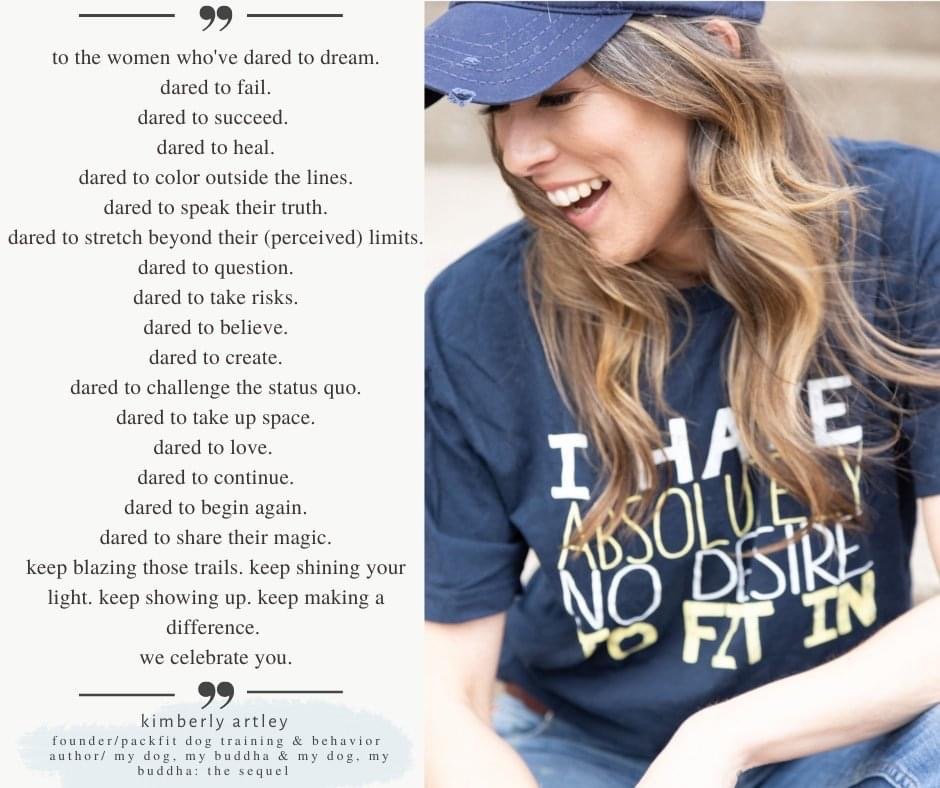
to women everywhere… we celebrate you.
to the women who've dared to dream.
dared to fail.
dared to succeed.
dared to heal….
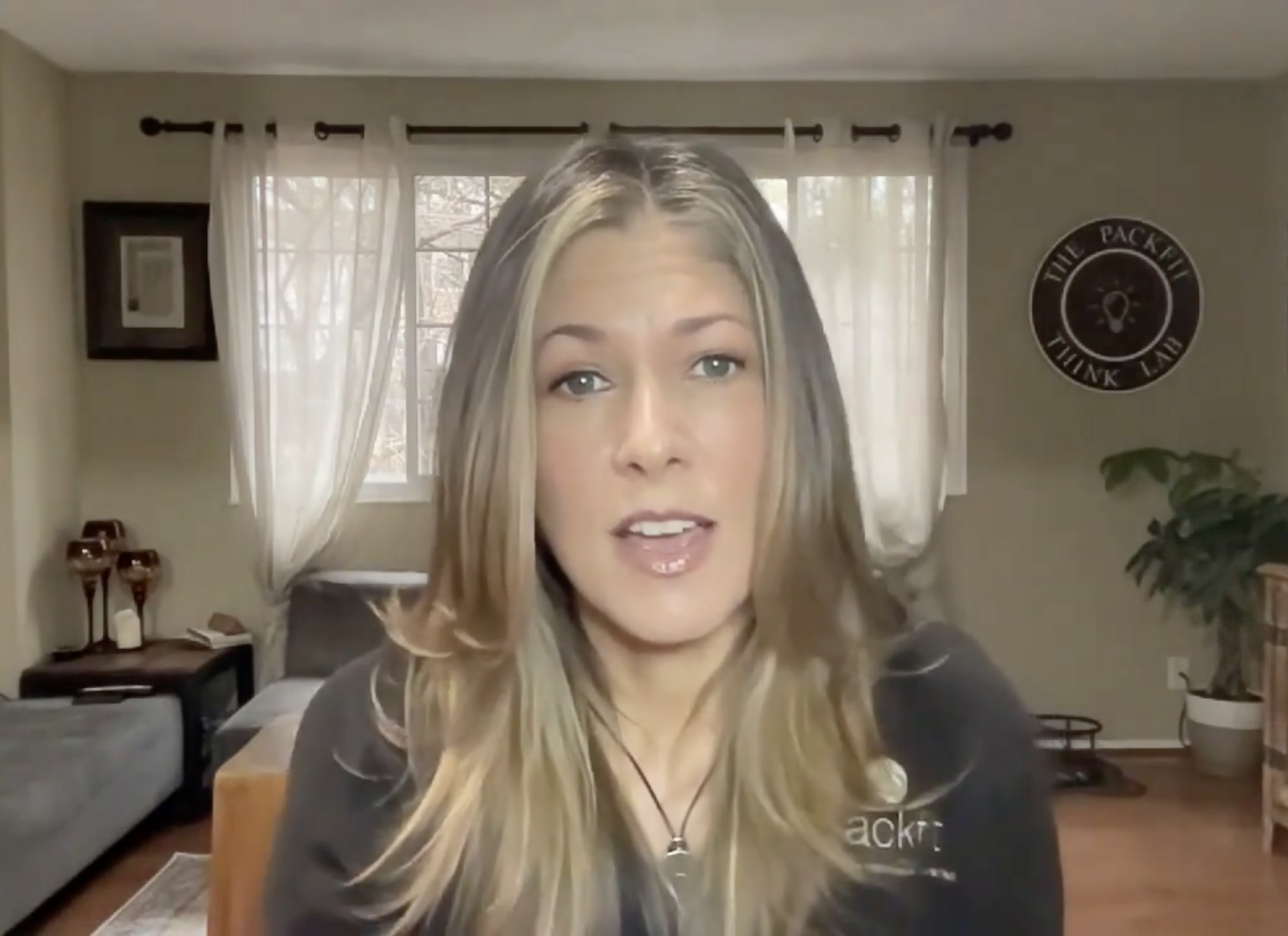
The importance of “the human end of the leash”
The work we do with people and their dogs has been described over and over again as "completely transformational" and "life changing." There are two ends of the leash. We're in relationship with our dogs. Both ends need to be addressed for the most effective behavioral change. If we believe it's "just the dog" that "needs training", any "results" we achieve will be very limited.
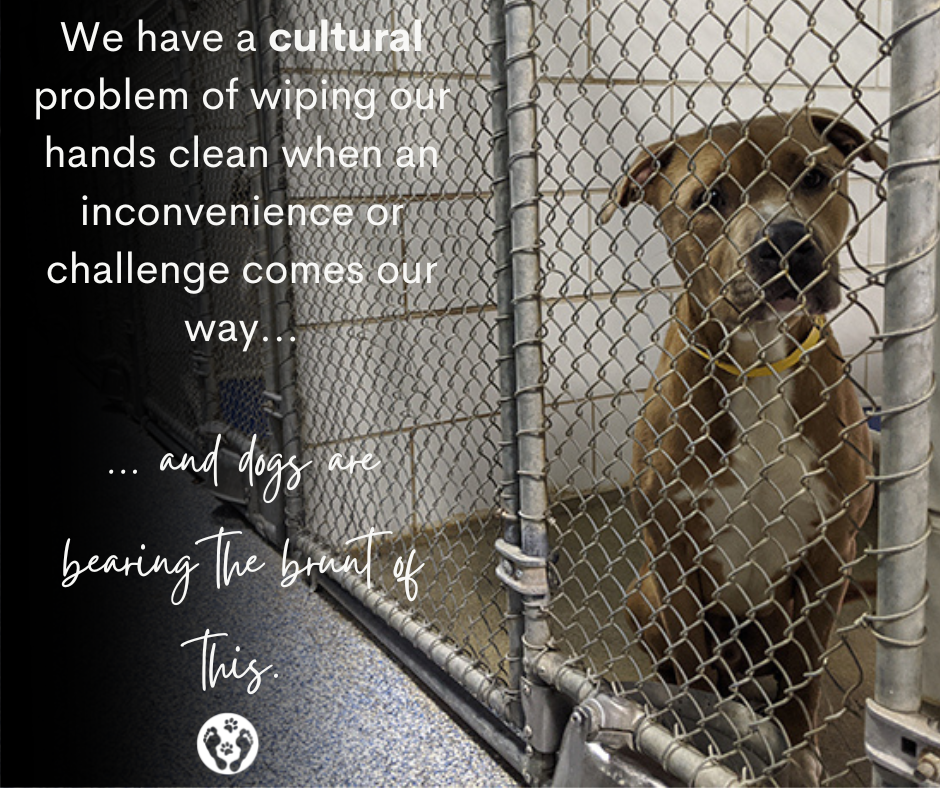
We have this cultural problem, and dogs are bearing the brunt of it.
As I ran across the umpteenth dog (... with "rehoming fee") in need of a home or else they "get euthanized" on social media, my blood started to boil. Beautiful, healthy dogs.

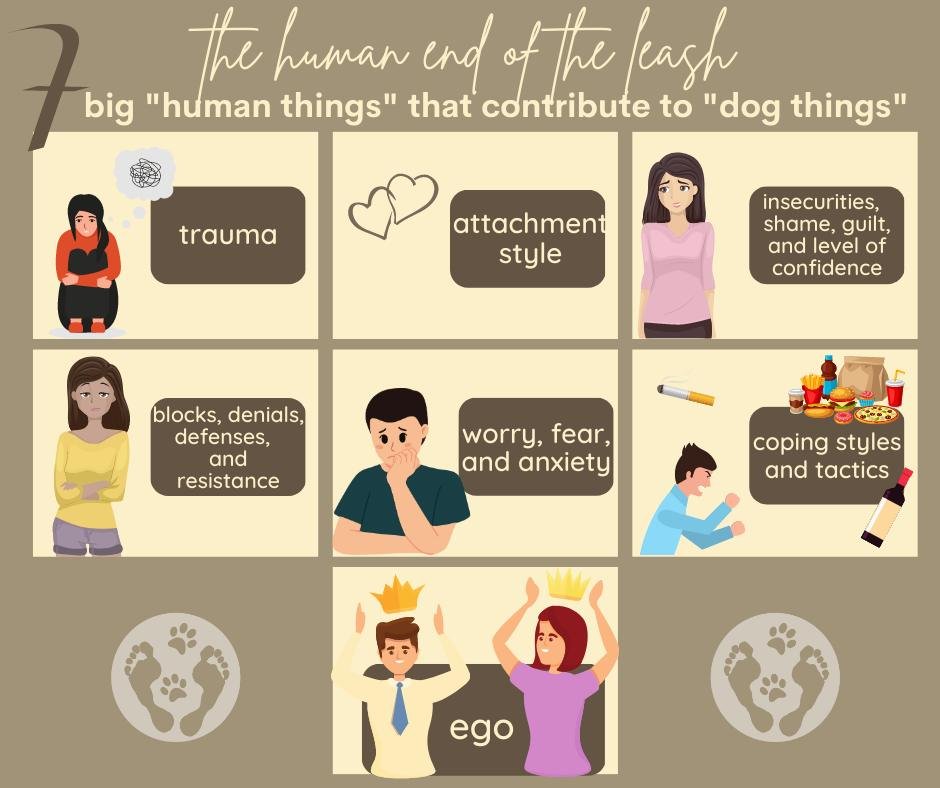
The 7th Big Human Thing that Contributes to the Big Dog Things
The 7 Big Human Things that Contribute to the Big Dog Things
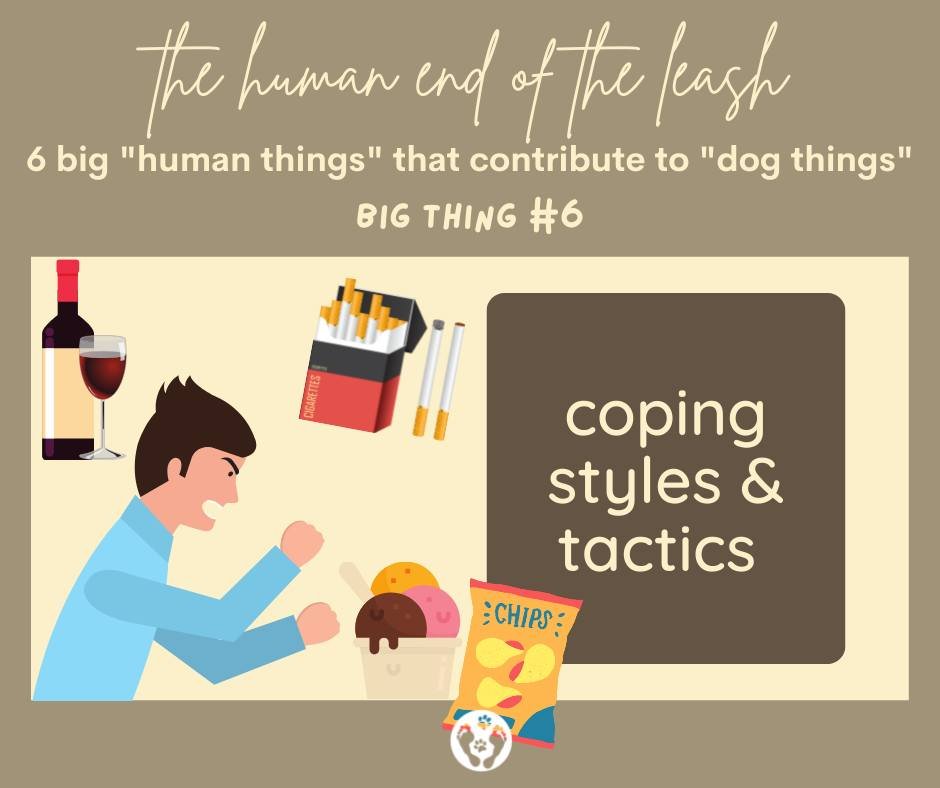
The 6th Big Human Thing that contributes to the Big Dog Things
How we cope with all of this and the tactics we've developed to do so will also show up through dog training.
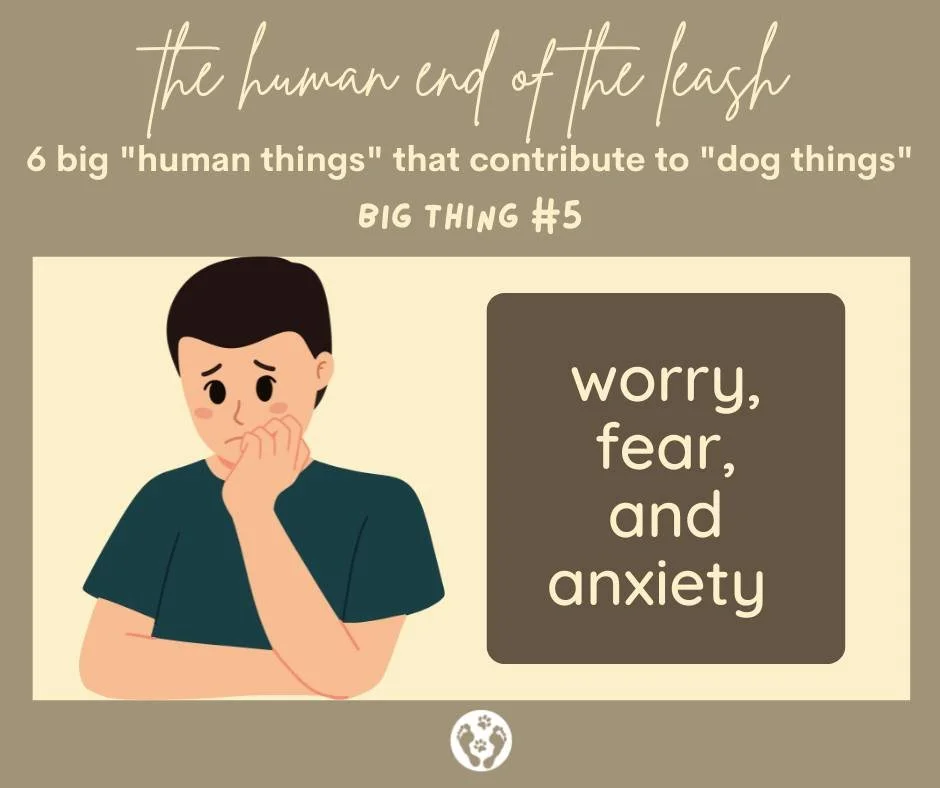
The 5th Big Human Thing that Contributes to the Big Dog Things
Worry, fear, and anxiety: the 3 Stooges; and how and why this impacts our relationship with our dogs.
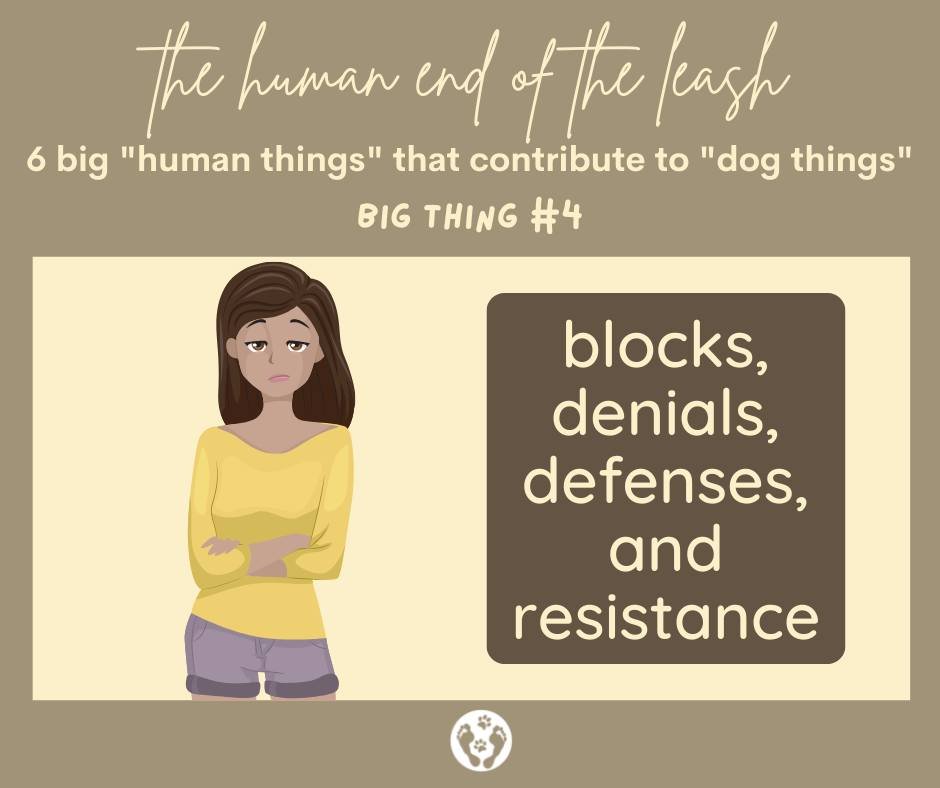
#4 of the 6 Big Human Things that Contribute to the Big Dog Things.
Blocks, denials, defenses, and resistance.
One or more of these 4 often show up in behavioral training, and there are several reasons why.
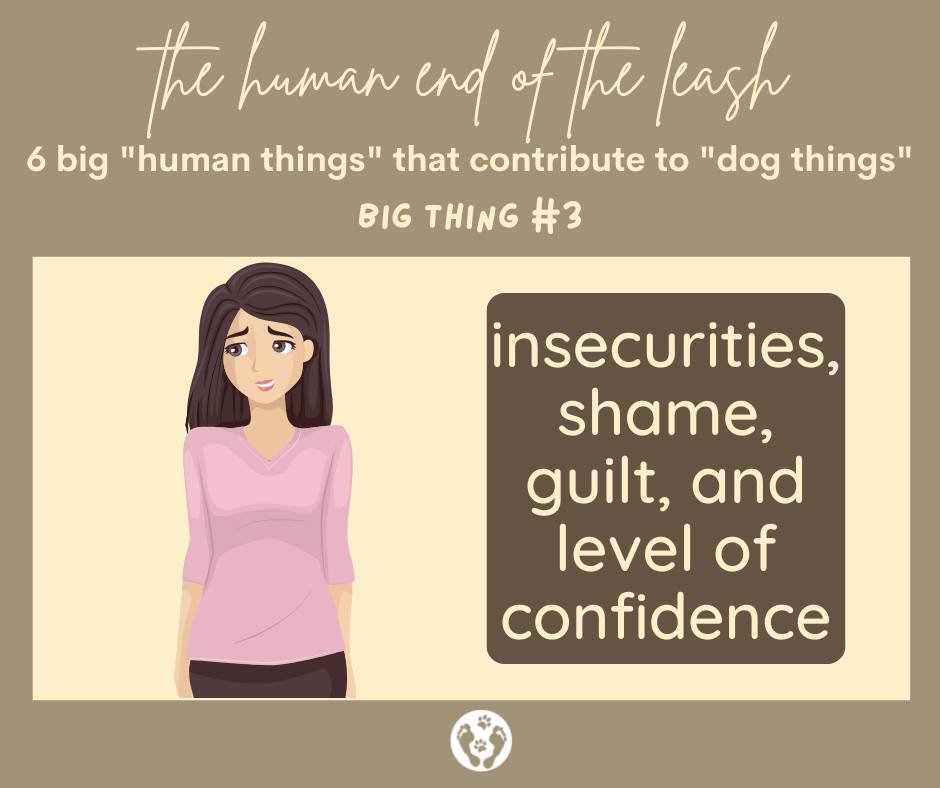
#3 Big Human Thing that Contributes to the Big Dog Things
In our ongoing series of moving through the "7 Big Human Things that Contribute to Dog Things", here is Big Thing #3: Insecurities, Shame, Guilt, and Level of Confidence.
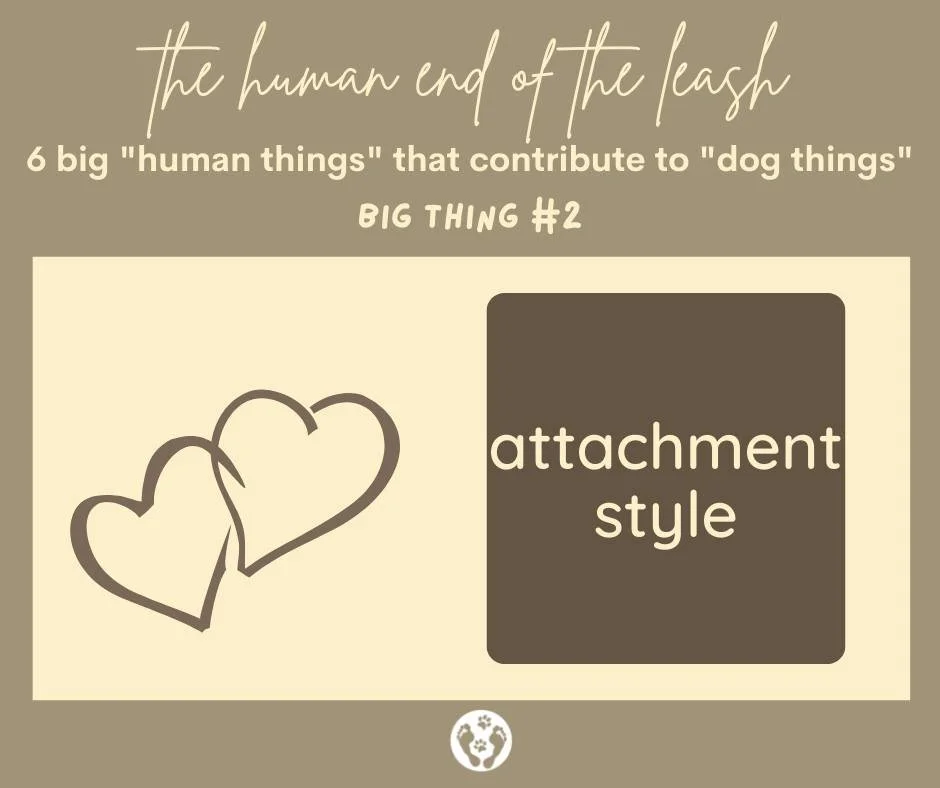
Big Human Thing #2: Attachment Style.
Human attachment style and how it impacts the relationship with our dogs.
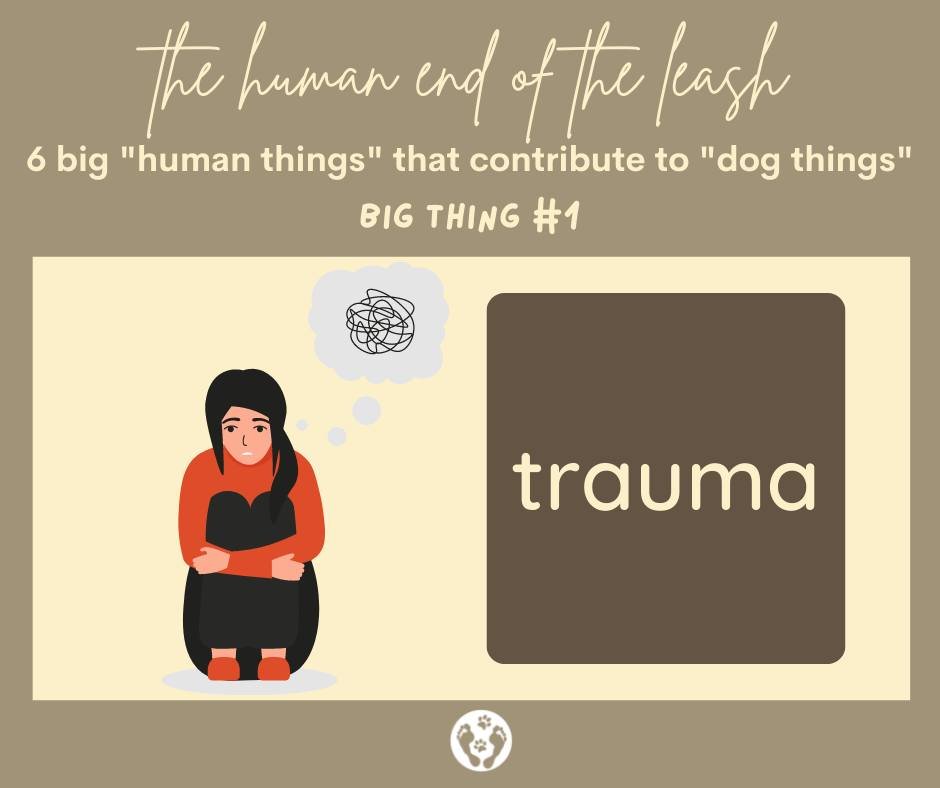

The 7 Big Human Things that Contribute to the Big Dog Things
What started out as “6” became the 7 Big Human Things that Contribute to the Big Dog Things. Who we are, what we do, what we don’t do, how we feel… it all matters.
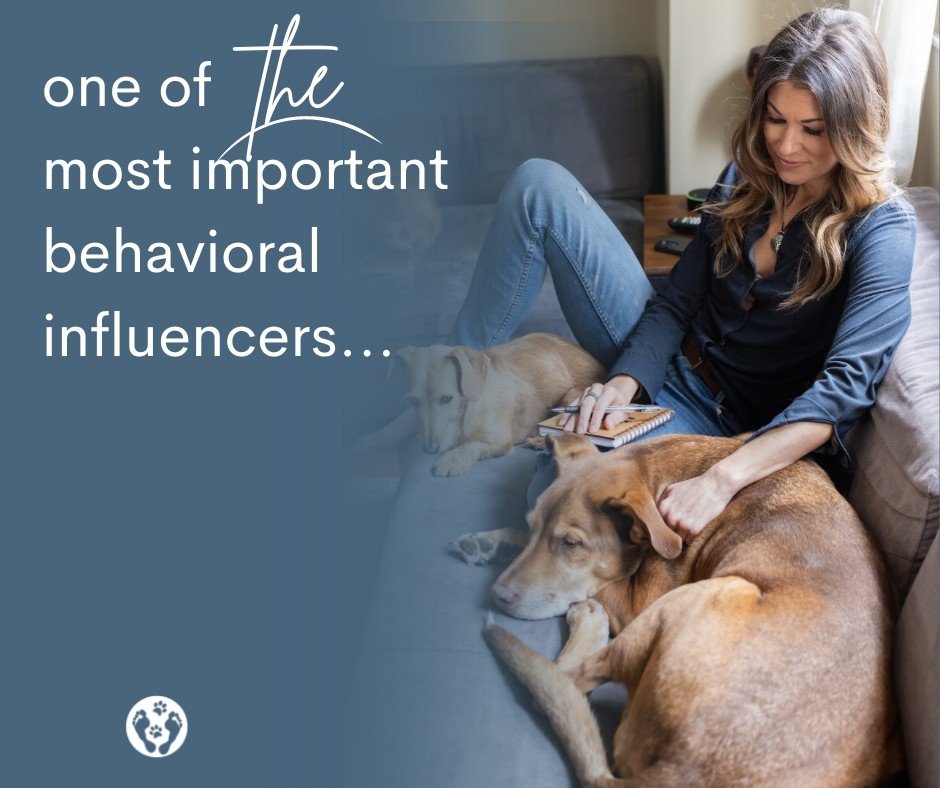
One of *the* most important behavioral influencers.
Of all of the behavioral influencers we have as social animals, the feeling of *safety* is the most important.
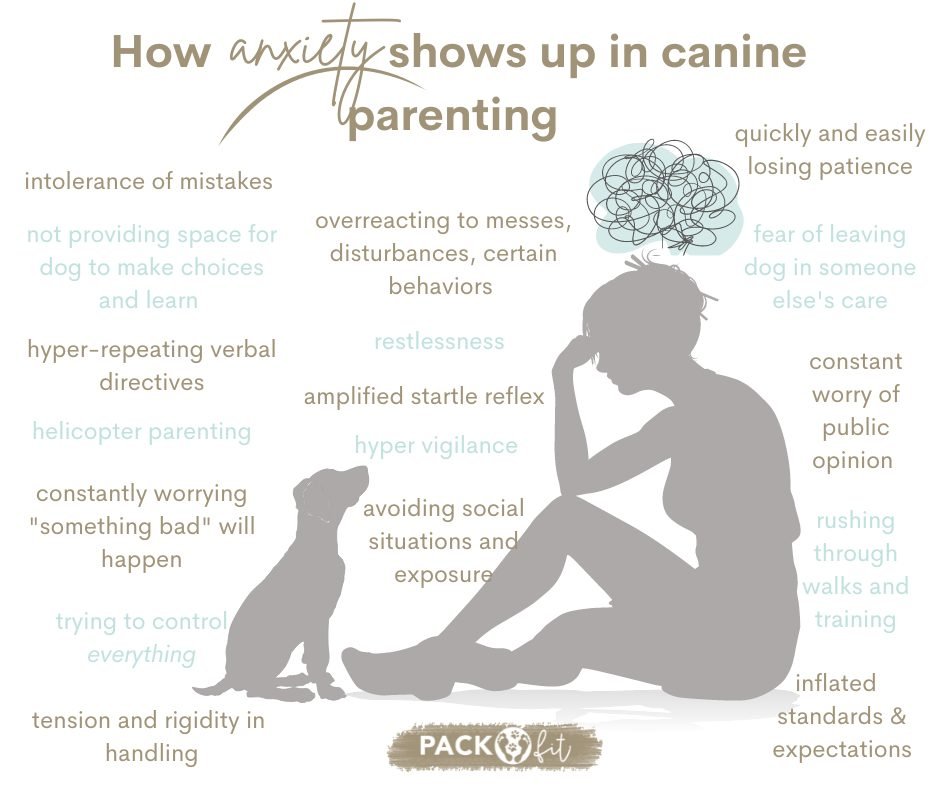
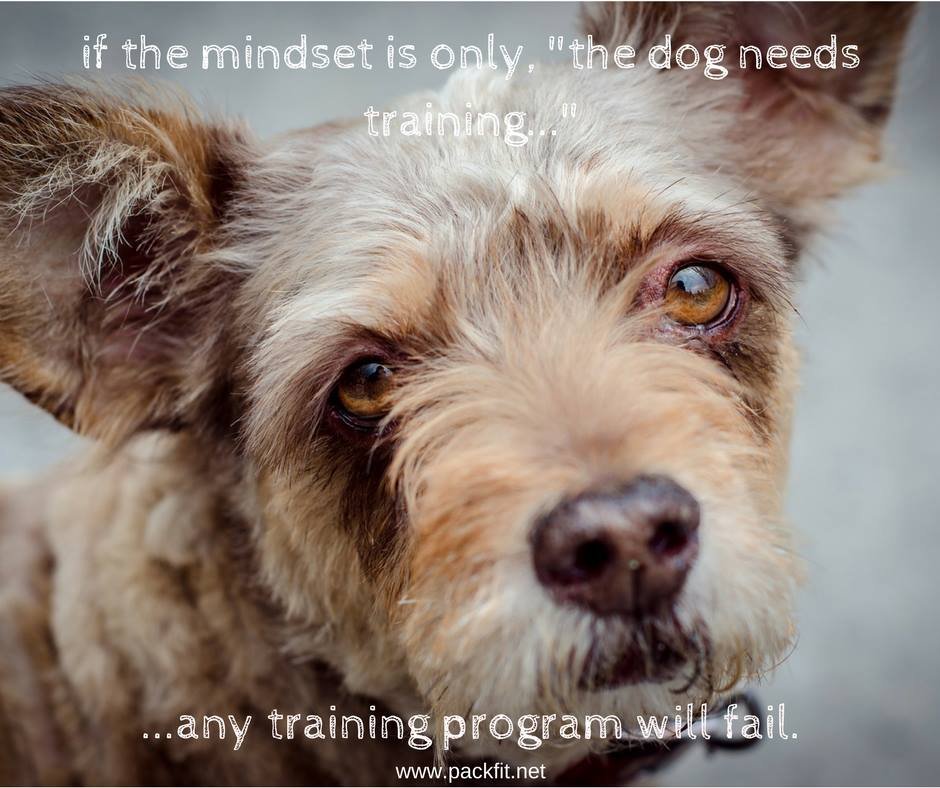
If the mindset is only “the dog needs training”, any training program will fail.
I learned this lesson (among countless others) many years ago with my game changer dog, Lobo. After bouncing from trainer to trainer to help me resolve some significant behavioral issues that developed directly after my divorce, there were 3 massive pieces to the equation each and every trainer missed: 1) the fact that "obedience training" does not resolve "behavioral issues" (every trainer harped on "obedience training" with him; a well-trained dog does not directly translate into a well-behaved dog), 2) the state of mind aspect, and 3) the human ingredient: the part I played in the development and influencing of his behaviors.

